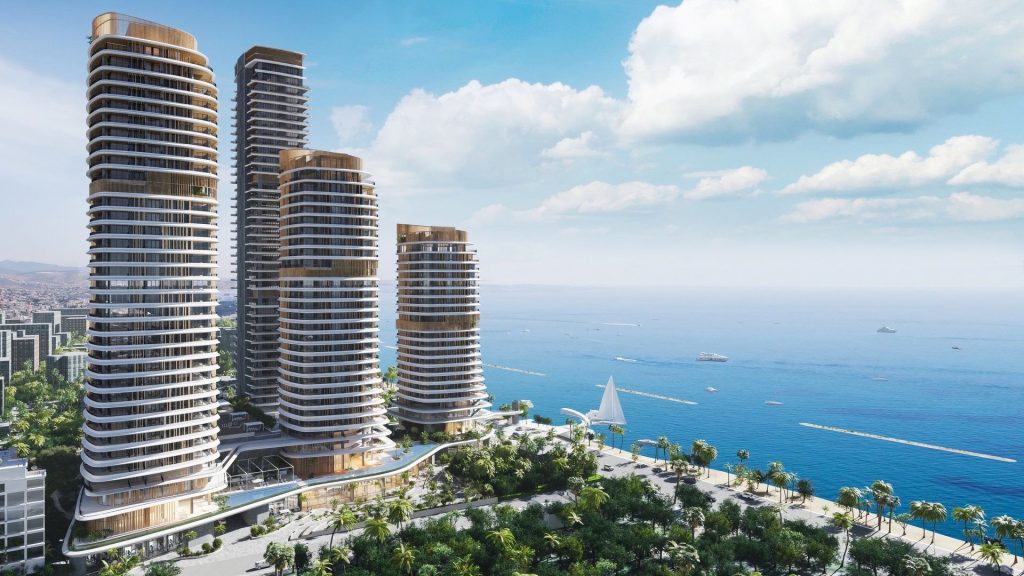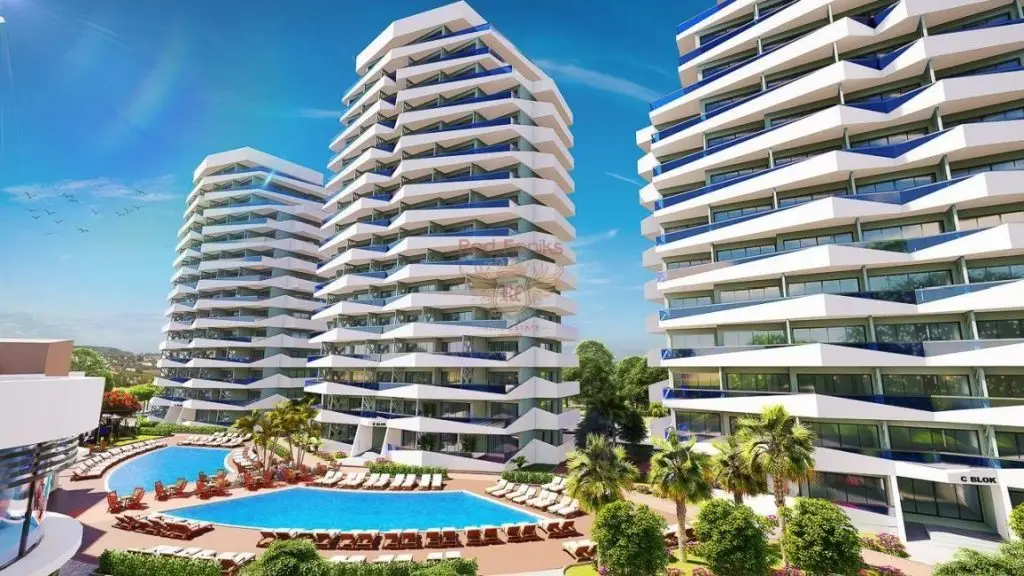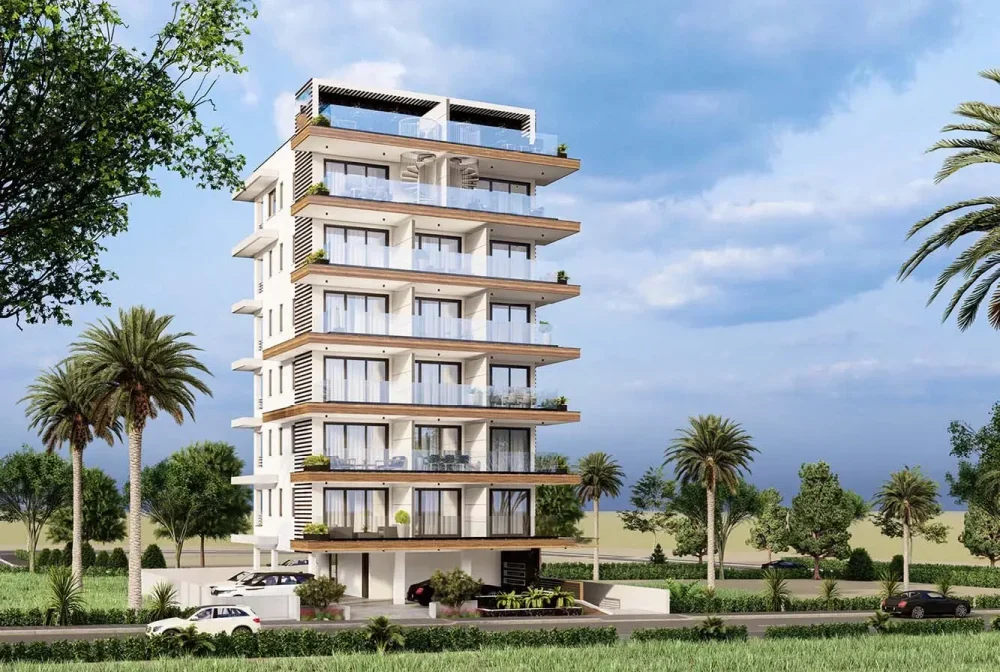The sunny postcard island has transformed into a stable financial jurisdiction with developed infrastructure, transparent rules for property acquisition and attractive tax conditions for investors. How to use these advantages and buy property in Cyprus without risks, with full transparency and guaranteed income? This question has come to the fore in 2025. Unprecedented investment inflows, favourable regulatory changes and growing demand for new-format housing create unique opportunities. Making the right choices in this new reality requires reliable information, a sound strategy and an understanding of local nuances.
Key areas of focus: where to buy
Property investment in Cyprus is not limited to the capital – the regions offer different formats of yield, payback periods and demand. Location determines the strategy: from stable corporate demand in Limassol to seasonal profitability in Ayia Napa. Each city forms its own investment profile based on infrastructure, tourism and development. The breakdown by destination allows you to more precisely select the entry point for your target – rental, capitalisation or personal residence.
Limassol
 A city with a business reputation. Demand from international companies consistently maintains a high price level. In the centre from 3,000 €/m², on the outskirts from 2,100 €/m². The nearest completion of major projects is the third quarter of 2025.
A city with a business reputation. Demand from international companies consistently maintains a high price level. In the centre from 3,000 €/m², on the outskirts from 2,100 €/m². The nearest completion of major projects is the third quarter of 2025.
Paphos
The cultural capital of the island. Interest in villas in the mountain zone has intensified: properties from 350,000 euros with a guaranteed yield of 4.8% per annum when rented out. Property in Cyprus here is formalised through a local lawyer, a contract and a 10% deposit reserve.
Ayia Napa
Paradise for short-term rentals. 70% of investors choose properties within 300 metres of the beach. The average yield is 5.5%. Current projects are studios up to 50 m² with prices starting from 140,000 euros.
Larnaca
A city with growth potential. The new harbour and the tourist area have boosted the market. New buildings from 1 900 €/m². How to buy a property in Cyprus in Larnaca – through a certified agency with a local licence, with the participation of a legal representative.
How to buy property in Cyprus in 2025: algorithm
The acquisition of a residential property requires strict adherence to procedures and the involvement of professional participants. Legislation simplifies the process but retains requirements for transparency of the transaction, especially for non-residents. The correct sequence of steps eliminates legal risks and ensures full ownership.
Action Algorithm:
- Site selection – analysing location, cost, profitability.
- Due diligence – verification of ownership and permits.
- Signing of the contract – the amount, payment schedule and responsibilities of the parties are fixed.
- Registration in the land cadastre – transfer of ownership.
- Authorisation – required for non-EU foreigners.
A lawyer provides supervision at all stages, including the application for authorisation and accompanying the registration.
Law and Taxes: What nuances are important to consider when purchasing
The financial side of the transaction goes beyond the value of the property – taxation and mandatory fees form the bottom line. Correct calculation and legal preparation exclude delays in processing and minimise fiscal risks.

The purchase is accompanied by the following fees:
- stamp duty – 0.15-0.20 per cent;
- VAT – 5% (first purchase), 19% for subsequent purchases;
- capital gains tax on sale – 20%.
A foreigner applies for an acquisition authorisation through the Council of Ministers. How to buy property in Cyprus without refusals? – provide proof of source of income, purpose of purchase and visa.
Cyprus residence permit and permanent residence permit through the purchase of property
The Residence Permit for Investment in Real Estate programme remains unchanged: the minimum threshold is 300,000 euros (excluding VAT). The document is issued in 60 days when buying a new building.
The residence permit is obtained after 5 years of residence or 7 years for secondary property. How to buy a property in Cyprus and get a residence permit – it means to choose a new object, make full payment and provide proof of funds.
Leases and investment attractiveness
Properties up to 60 m² are available from €450 per month (long term) and from €70 per day (short term). The high season is from May to October. The average yield is 4-6% per annum.
How to buy property in Cyprus for rent – choose a region with developed infrastructure, tourist flow and a limited number of new buildings.
Investment trends
In 2025, purchases among families from Germany, Israel and the Czech Republic have intensified. The reasons are stable climate, English-speaking environment, transparent taxation. Large investment projects – Porto Limassol, Neo Plaza, Ayia Napa Marina.

How to buy property in Cyprus for investment purposes – invest in projects at the construction stage with guaranteed resale in 2-3 years. The average margin is 18-22%.
The pros of living in Cyprus
The comfort of the climate is combined with ease of living and access to European infrastructure. The island offers not only warm winters, but also a clear rental system with transparent rules. The advantages of living in the resort create a strong interest in the location for both residential and investment rentals.
Benefits:
- The average annual temperature is 24 °C;
- lack of central heating;
- access to European schools;
- security and tax transparency.
The rental income provides stable cacheflow:
- Long-term rentals – up to 4% per annum in Larnaca;
- short-term – up to 6% in Ayia Napa.
Property in Cyprus for foreigners
How to buy a property in Cyprus as a non-EU citizen? Formalise the purchase through a Cypriot lawyer. Citizens of the CIS, UAE, Israel and Canada participate in transactions with an international passport and income certificate.
Prices and the market: what the statistics show
The market is showing steady growth. Based on the results of the first quarter of 2025:
- volume of transactions increased by 9.3%;
- the share of foreign buyers was 41%;
- The highest demand is for properties up to 400,000 euros.
Cyprus property prices vary from region to region:
- Limassol – from 3 000 €/m² (centre), from 2 100 €/m² (suburbs).
- Paphos – from 1 800 €/m².
- Larnaca – from 1 900 €/m².
- Ayia Napa – from 2 400 €/m² (coastal area).
How to buy property in Cyprus with an understanding of real prices? – Use Cyprus cadastre data and monitoring of new property developers’ projects.
Legal aspects: contract and property
The contract fixes the price, terms, settlement procedure and obligations of the parties. In case of breach of terms, the seller pays a penalty. A lawyer accompanies the transaction from signing to registration.
Ownership of the property is transferred after registration with the Land Department. The transaction requires a permit for non-residents. How to buy property in Cyprus and avoid mistakes – check the history of the object, debts, availability of all building permits.
Pre-purchase inspection
A thorough inspection protects against hidden encumbrances and speeds up title registration. A properly structured audit of the property allows you to avoid legal pitfalls and disputes after the purchase.
Before closing the deal, it’s important:
- Inspect the property for liens or litigation.
- Request an extract from the cadastre.
- Verify that a building permit is in place.
- Carry out an independent assessment of value.
- Check the legal cleanliness of the documents.
- Verify the licence of the agency or builder.
- Confirm payment of taxes and fees by the previous owner.
This approach reduces the likelihood of registration refusal and prevents possible financial disputes. Full verification serves as a guarantee of transparency of the transaction and confirms the legal status of the object.
How to buy a property in Cyprus: the main thing
 The choice of location, legal due diligence, specialist support and knowledge of market realities form a safe and profitable purchase. Thus, successful investment requires a comprehensive approach and due diligence at every stage, which is the key to safeguarding your funds and achieving your goals.
The choice of location, legal due diligence, specialist support and knowledge of market realities form a safe and profitable purchase. Thus, successful investment requires a comprehensive approach and due diligence at every stage, which is the key to safeguarding your funds and achieving your goals.
 en
en  de
de  ar
ar  es
es  nl
nl  hi
hi  fr
fr  it
it  pt
pt  el
el 









